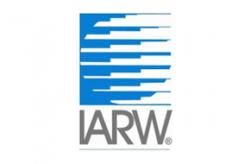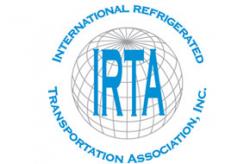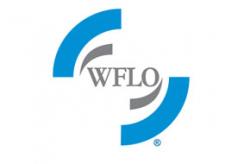Supply chain policy in the spotlight
The increased focus on supply chain issues represents an opportunity for the cold chain industry. The COVID-19 pandemic has highlighted the critical role of supply chains to a strong economy where consumers have reliable access to essential goods such as food. While the food supply chain has shown resiliency and strength, disruptions have highlighted some challenges. As a result, policy makers are paying closer attention to supply chain issues.
In the near term, Congress has provided the United States Department of Agriculture (USDA) with funds to support the food supply chain through COVID relief legislation. The recently passed American Rescue Plan includes $4 billion to support food supply chain and agriculture pandemic response. Key provisions include:
- Increasing food available for distribution through food banks, nonprofits or restaurants to help feed families in need and at the same time supporting farmers by purchasing their products.
- Providing grants and loans to reimburse or purchase personal protective equipment, test kits, and other measures to keep essential food workers safe.
- Investing in infrastructure and retooling support for food processors, farmers markets, food banks, local food systems and producers to build resiliency in the food supply for the long term.
- Funding the monitoring of COVID-19 in animals and reducing overtime inspection fees paid by small meat and poultry processors, supporting livestock and animal health.
In addition, the COVID Stimulus Package, part of the Consolidated Appropriations Act passed in December 2020, authorized no less than $1.5 billion for grants to small or midsized food processors or distributors, seafood processing facilities and processing vessels, farmers markets, producers or other organizations to respond to coronavirus, including for measures to protect workers against COVID-19.
Advocating for Relief
GCCA is actively engaging with the Biden Administration to ensure that these pandemic relief funds can be used to assist companies in the cold chain. GCCA has met with officials at the White House and leaders at USDA to highlight the impacts to the cold chain industry, and how our members have stepped up during the pandemic to maintain supply chain integrity while ensuring food safety and quality. Access to grants under the Stimulus Package and the American Rescue Plan would provide much needed relief to help our members through this difficult time. GCCA has requested that grants be made available to food logistics companies to help offset COVID-related expenses including:
- PPE, Cleaning and Worker Protection Technologies: Worker safety remains a top priority for GCCA and its members. Throughout the pandemic, our members have made significant investments in personal protective equipment (PPE), cleaning and sanitation products and services and new technologies including air filtration and electrostatic cleaning to protect their workforce.
- Detention, demurrage and related costs of supply chain disruptions: Supply chain disruptions caused challenges to the efficient flow of import and export containers. As a consequence, this disruption caused many of our members to face significant per diem, detention and demurrage charges outside of their control. The disruption in flow of containers also led to added fuel and energy costs to keep refrigerated containers at the proper temperature to preserve food safety and quality while our members waited for the supply chain to move. Supply chain disruptions have also caused increased costs related to critical materials and inputs and led to much longer lead times in procurement.
- Labor costs: The pandemic has placed strains on the labor market, causing major costs to our members. Whether it is a lack of childcare or concerns over using mass transit, during this pandemic our members have faced a labor shortage to meet growing demands. To stay operational, companies have been paying overtime and premium pay rates to team members healthy and willing to work, and in addition, many companies have hired outside labor, which often comes with a hefty price tag.
- GCCA is also encouraging USDA to utilize funds from the American Rescue Plan to provide loans to food logistics companies to help strengthen the food supply chain for the future. The financial impacts of the pandemic have placed major constraints on the ability of our members to invest in facility improvements and capacity expansions. Resources were shifted away from capital budgets to address the extraordinary expenses incurred responding to the pandemic. Loans should be made available to provide viable capital options so companies can strengthen their infrastructure to meet future supply chain needs.
Supply Chain Executive Order
While COVID relief programs can assist in mitigating the immediate impacts of the pandemic, the Biden Administration is also considering broader policies to strengthen supply chains for the future. On February 24, 2021, President Biden signed an Executive Order on America’s Supply Chains. The order asserts that the United States needs resilient, diverse and secure supply chains to ensure our economic prosperity and national security. Resilient American supply chains will revitalize and rebuild domestic manufacturing capacity, maintain America’s competitive edge in research and development and create well-paying jobs. They will also support small businesses, promote prosperity, advance the fight against climate change and encourage economic growth The Executive Order calls on the federal government to conduct supply chain assessments for critical sectors, including food and agriculture. Within one year of issuing the order, the Secretary of Agriculture, in consultation with the heads of appropriate USDA agencies, shall submit a report on supply chains for the production of agricultural commodities and food products. The report will include a review of the critical goods and materials underlying the food supply chain, the manufacturing or other capabilities necessary to produce the critical goods and materials to support the food supply chain, and risks or other contingencies
that may disrupt, strain, compromise, or eliminate the food supply chain. The report will assess the resilience and capacity of American manufacturing supply chains and the industrial and agricultural base of the United States to support national and economic security and emergency preparedness. Sectoral reports will also include specific policy recommendations for ensuring a resilient supply chain for the sector.
Such recommendations may include sustainably reshoring supply chains and developing domestic supplies, cooperating with allies and partners to identify alternative supply chains, building redundancy into domestic supply chains, ensuring and enlarging stockpiles, developing workforce capabilities, enhancing access to financing, expanding research and development to broaden supply chains, addressing risks due to vulnerabilities in digital products relied on by supply chains and addressing risks posed by climate change. The increased focus on supply chain issues represents an opportunity for the cold chain industry. GCCA will continue to work closely with the White House and USDA on pandemic relief programs and the upcoming supply chain assessments to promote and protect the interests of the cold chain.
LOWELL RANDEL is Senior Vice President, Government and Legal Affairs at GCCA.
EMAIL: lrandel@gcca.org
Source: Cold Facts May/June 2021 issue



